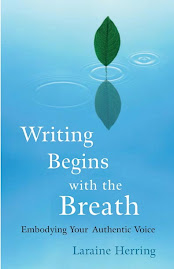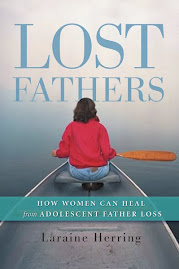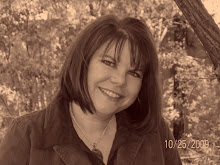
I know, I know, you're already mad at me and I haven't even said anything. But isn't the kitty cute? And isn't it just even a little bit funny?
I'm working up my notes for The Writing Warrior (manuscript deadline October 15!), and I'm trying to locate the heart of the book. I do this not by thinking about what the heart could be, but by writing about what I think I want to write about, which inevitably points out the flaws in my thinking and points me in the direction I need to be writing. I thought it would be a fun use of the blog to chronicle some of the writing process -- the starts and stops and detours.
This semester, my students have been very resistant to practice. Perhaps because it's spring and they want to be dancing in fields of poppies. Perhaps because they are worried about their futures. Perhaps because they are simply not ready to commit to writing. There's no judgment on that. Writing is serious business.
I've had students complain to me that they aren't writing enough, and when I ask them if they're writing, they say, "Well, no..." Hmmm. Good thing I got these fancy shmancy degrees to diagnose the problem there. :-) Writing begets writing. There's no other way to write but to write. There are no tricks, though there are plenty of diversions. One of the things I hope to show in The Writing Warrior is that any structure someone provides you for writing, or any structure you create yourself, is only as beneficial as your ability to work freely within it. It's only as beneficial as your ability to stay centered and focused. The structure or the concept doesn't make the writing work. Your discipline and practice and flexibility make the writing work. When a structure of any kind (relationship, job, religion, writing, city) becomes a prison, it's time to move.
Now, what writing practice does is it illuminates each writer's personal "stuff", for lack of an appropriate blog word. It yanks out into the open everything that writer has been trying not to look at. And so the writer goes away. This is normal behavior, but a book about writing, or a class about writing, can't address the nuts and bolts (yes, here's the way to punctuate dialogue) without addressing the real reason writing is hard. It holds up a mirror to your own demons. It dares you to look, and dares you further to write about it, and then dares you even further to share it publicly. Yeah, is it too late to change majors to something safer like Pyrotechnics in the Middle East?
Writing practice brings up your limitations. This is a gift, not a problem. Awareness creates softness and compassion. Illusion creates fear and contraction. The more you know about what you do and why you think and feel the way you do, the more room you have to make authentic decisions. Writing practice shows you your belief systems about yourself, your family, your world. It shows you where you need to be right and where you feel invisible. Gifts, gifts, gifts.
One of my favorite books is If You Meet Buddha on the Road, Kill Him by Sheldon Kopp. What he means, of course, is on your quest to self-knowledge, anything that gets in your way toward true self-intimacy, needs to go. Even if that something is a revered deity. Get it out of your way. It's a symbol, it's the finger pointing at the moon, it's representative of an endless search. You don't need it.
At the Tucson Festival of Books last weekend, I came across When You Catch an Adjective, Kill It by Ben Yagoda. Hilarious book.
So, lest you think I hate adjectives and all manifestations of God/dess, let me reassure you that I don't. I have been known to use an adjective or two, and right now my office displays a statue of Buddha, Ganesh, Kali, the Venus of Willendorf, a yin/yang symbol and a cross.
One of the exercises I give my first year creative writing students is to write a passage describing a person they know without using any adjectives or adverbs. The intent is not to wipe adjectives and adverbs off the face of the earth, but rather to show the student that very often they cloud the image of the noun. They get in the way of the reader seeing what is really there. As Ben Yagoda says, adjectives are often used by lazy writers "who don't stop to think that the concept is already in the noun."
Writers get in the way of their own writing because they don't yet know that the writing is where they are. There is no where to go. No writing that will unlock the secret code to fame and fortune. No writing that will bring about world peace. But what writing will do is open the writer's heart. It will bring forth her sorrows and her joys, her secrets and her lies. It will bring these out, and once in daylight, they will vanish and she will find she has space in her body, in her mind, and in her heart. And as one writer opens to herself, she brings that changed being into the world and into her contact with others. She has no attachment to whether others change or not, no attachment to whether they write or don't; she simply is, and in that 'is-ness' she is the noun, nothing in the way of all that beauty.











4 comments:
My favorite sentence in this whole delightful piece: " "...it's the finger pointing at the moon..."
Tonight rose-gold herring bone clouds against the blue dark. No moon. No finger. Only being able to see.
love, m
Such a very important reminder for me. Thank you.
By the way, I gave you a blog award this morning - http://www.andilit.com/?p=411.
Love you.
I love the non-adjective descriptions you have your students write! As soon as I saw that, I started trying to do it in my head. (I might have to use dialogue, is that allowed?)
Great post! (and funny!)
Yes, you can use dialogue! Try that without adjectives or adverbs too! :-)
Laraine
Post a Comment